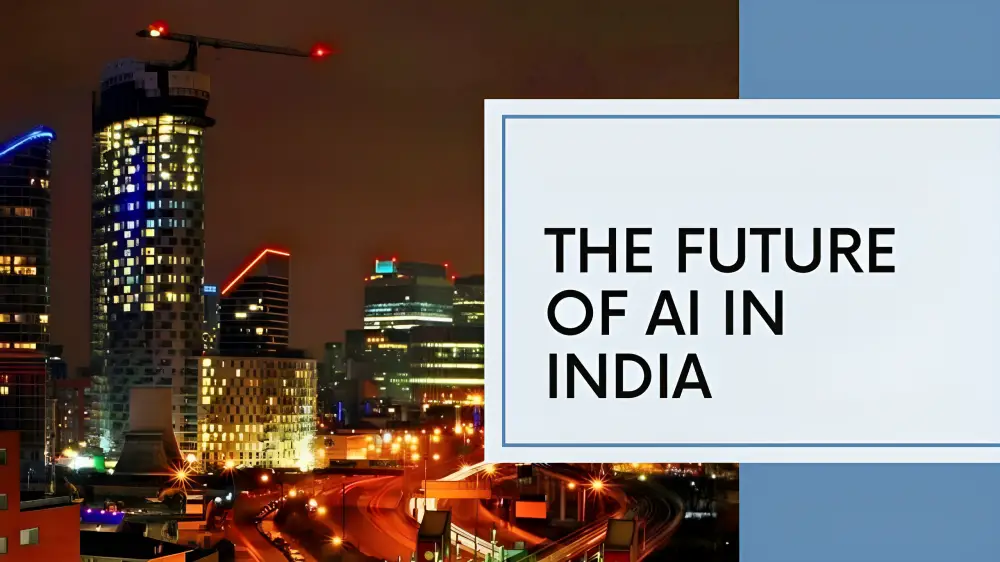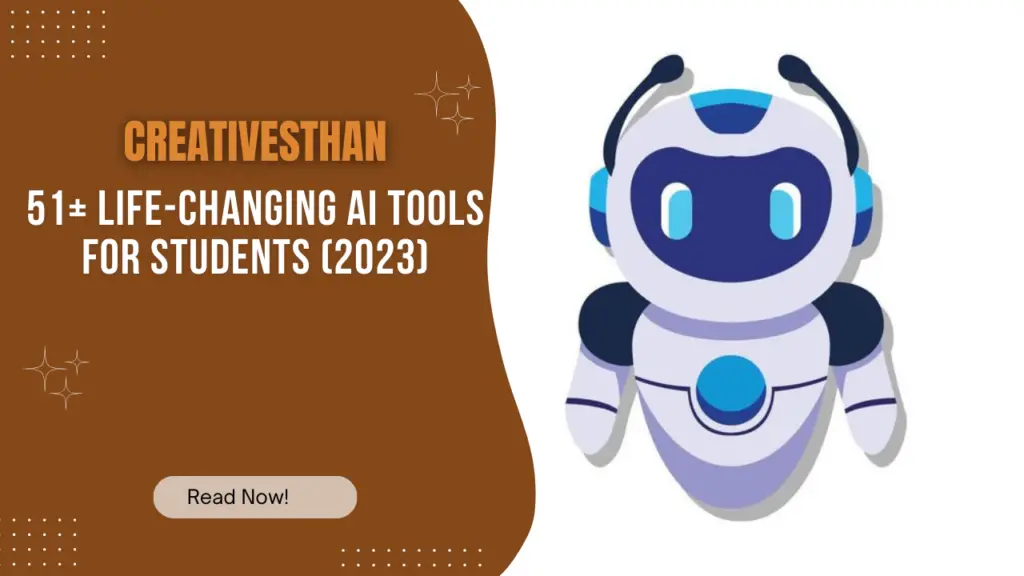Hello to my beautiful readers, hope you all are doing great in your fields. So, By reading the title you have got to know what the blog post is gonna about to be, Right?
AI is the most trending word these days. Companies are coming with different-different tools every day or week I would say.
Many individuals got thousands or even millions of profit with the help of AI.
It is in buzz these days everybody is learning about it, taking help of it do their works. But wait, What is our country doing about this? So, for that, you need to stick with this blog post till the end.
As the world stands on the ridge of a new era driven by technology, India finds itself at the forefront of a revolution in artificial intelligence (AI).
With the second-largest population on the planet and a rapidly growing economy, India’s role in shaping the future of AI is more significant than ever.
This article explores the current state of AI in India, the government’s initiatives, its applications across various sectors, and the path forward.
AI Initiatives in India
In recent years, the Indian government has taken significant steps to promote AI development in the country.
In the Union Budget of 2023, Finance Minister Nirmala Sitharaman articulated the vision: “Make AI in India and Make AI work for India.”
The commitment to AI was evident with several key announcements:
- Centers of Excellence (CoEs): The government proposed the creation of Centers of Excellence for AI learning and development. These centers would focus on advanced AI research and development, addressing the growing demand for AI talent.
- AI in Key Sectors: India plans to partner with industries to develop scalable AI solutions in areas like agriculture, health, education, and sustainable cities. Projects such as Digital India BHASHINI and Digi Yatra aim to pave the way for large-scale AI implementation across sectors.
- National Data Governance Policy: To promote innovation, the government will launch a National Data Governance Policy, enabling widespread access to anonymized data for startups and academia.
- Skill Development: The Pradhan Mantri Kaushal Vikas Yojana (PMKVY 4.0) will upskill thousands of youths and align courses with industry needs, including AI and IoT.
- Integration of AI into India Stack: The integration of an AI layer into India Stack is expected to enhance the sophistication and nuance of India’s digital infrastructure.
AI in Various Sectors
The adoption of AI is on the rise across various sectors in India:
- Manufacturing: With the aim to become a trillion-dollar sector and contribute 25 percent of the national GDP by 2025, the manufacturing sector is embracing AI for shopfloor automation, predictive maintenance, quality control, and waste reduction.
- BFSI Sector: The Banking, Financial Services, and Insurance (BFSI) sector is undergoing a rapid digital transformation, focusing on improving tech infrastructure to enhance customer experiences. AI solutions are making inroads into digital lending, insurance, fraud detection, and investment processes.
- Retail and FMCG: The retail sector contributes significantly to India’s GDP. Improved digital connectivity has led to a surge in consumption in both urban and rural areas. AI is driving data-driven analysis and decision-making, including demand forecasting, inventory management, and marketing spend optimization.
- Healthcare: The healthcare market in India has grown exponentially, with investments in high-end healthcare products and facilities. Cutting-edge technologies such as remote diagnostics, robotic surgeries, telemedicine, and preventive analytics are being explored.
- Tech Giants in India: Global tech giants like Google and Microsoft are heavily investing in AI research and development in India. They are working on implementing AI in sectors such as healthcare, agriculture, wildlife conservation, education, telecom, tourism, and digital media.
AI Startups and Research Institutions
India’s AI landscape is also witnessing the rapid growth of startups and research institutions dedicated to AI.
Startups like Zebra Medical Vision, SigTuple, and Niramai are making significant strides in AI-based healthcare solutions.
These startups are collaborating with hospitals and research centers to develop cutting-edge diagnostic tools.
Research institutions like the Indian Institute of Technology (IIT), the Indian Institute of Science (IISc), and the Tata Institute of Fundamental Research (TIFR) are actively engaged in AI research, attracting talent from across the country and the world.
Global Collaborations
India is not limiting its AI aspirations within its borders.
The country is actively seeking global collaborations to advance AI research and development.
Collaborative initiatives with countries like the United States, the United Kingdom, Canada, and Israel are fostering the exchange of knowledge and resources.
These partnerships are pivotal in keeping India at the forefront of AI innovations.
The Future of AI in India
A report by IDC projects that India’s AI market will reach $7.8 billion by 2025, growing at a CAGR of 20.2 percent.
Organizations are expected to invest in AI solutions across various functions, from customer service to IT automation and security.
India has already established itself as a hub for AI talent, ranking first globally in AI skill penetration.
The vast digital talent pool is rapidly upskilling to meet the increasing demand for AI expertise.
Despite these positive developments, India’s AI maturity level, as per the Nasscom AI Adoption Index 2022, is in the middle.
There’s a need for enterprises to scale up their AI initiatives significantly, embedding AI strategies within their corporate goals and investing in data standards and dedicated AI teams.
The emergence of platform-agnostic AI solutions delivered on-demand over the cloud is poised to reduce deployment and maintenance costs, scale AI projects, and ensure lasting business outcomes.
Challenges and Opportunities
While the future of AI in India is promising, it’s not without its challenges.
Privacy concerns, data security, and ethical considerations are paramount in the age of AI.
India must establish robust data protection and privacy laws to build trust and ensure responsible AI adoption.
Moreover, ensuring AI benefits reach the rural and underserved population is vital.
AI has the potential to bridge gaps in healthcare, education, and agriculture in remote areas.
Government policies must focus on inclusive AI adoption to ensure equitable development.
FAQs
1. What is the current state of AI development in India?
AI development in India is rapidly advancing, with a focus on healthcare, education, agriculture, finance, manufacturing, and smart cities.
2. How is AI transforming healthcare in India?
AI is improving healthcare in India through early disease diagnosis, predictive analytics, and drug discovery, making healthcare more efficient and accessible.
3. Can AI help improve agricultural practices in India?
Yes, AI is optimizing agriculture in India by enhancing crop yields, resource utilization, and enabling precision farming.
4. What role does AI play in Indian education?
AI is personalizing education in India, offering tailored learning experiences and streamlining administrative processes.
Conclusion
Okay! we have come to the conclusion part so let me sum up the whole th
In the global AI landscape, India has a unique role to play. The vast and diverse data sets, combined with a young and dynamic workforce, provide India with a competitive advantage.
Leveraging AI for societal good and inclusive growth will be the hallmark of India’s AI journey.
As India continues to unlock the potential of AI, not only will the nation’s economy thrive, but it will also serve as a beacon of innovation for the world.
With the foundations laid, the government’s commitment, and private sector investments, India’s AI future is indeed luminous.
The transformative power of AI across sectors promises a brighter, more efficient, and more equitable future for the country.


